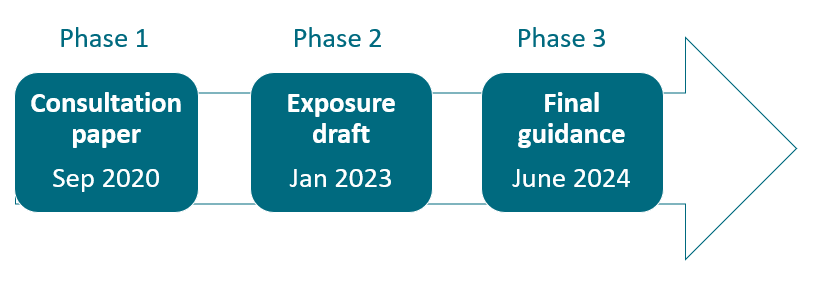Most non-profit organisations (NPOs) around the world have no sector-specific framework guiding how they prepare their general-purpose financial statements. About a dozen countries have developed their own national-level guidance, such as the Statement of Recommended Practice for Charities in the UK.
Many countries, such as Kenya, require NPOs to apply International Financial Reporting Standards, which are set by the International Accounting Standards Board (IASB).
Other countries, such as Ethiopia, require NPOs to apply International Public Sector Accounting Standards (IPSAS), which are set by the International Public Sector Accounting Standards Board (IPSASB).
But both IASB and IPSASB acknowledge their standards were not written with the not-for-profit sector primarily in mind. The result is that NPO financial statements are highly inconsistent between countries, as NPOs and their auditors seek to apply and interpret different frameworks.
Because the existing international standards are often silent on key issues affecting non-profits, such as accounting for donated assets, these issues might be dealt with differently even within the same country, if different preparers and auditors apply different interpretations.
The knock-on effect of this inconsistency is a perceived lack of value to users of NPO general-purpose financial statements, whether for regulation, consolidation, governance, accountability or due diligence. Many funders, unable to monitor the financial performance of their grants and projects in the general-purpose financial statements, require their own formats for project financial reports and demand separate project audits.
The time and costs of meeting these project-focused requirements is immense, but only provides limited assurance compared to a full organisational audit, especially when it comes to the risk of the same expenses being claimed from two different donors.
The project-level focus also tends to make the donors focus on the financial performance of the project, rather than understanding the overall financial health of the organisation and how their support fits within the context of all the organisation’s activities.
“As the world enters a new decade, we need a thriving and accountable ‘third sector’ to take its rightful place alongside business and government in tackling the many social and environmental challenges we face”
CIPFA has partnered with Humentum in an ambitious initiative to address this sector-wide, global challenge. The International Financial Reporting for Non-Profit Organisations (known as IFR4NPO) project was launched in July last year with the objective to produce internationally applicable guidance for NPOs by 2024.
Ian Carruthers, chair of standards at CIPFA, chairs the Technical Advisory Group (TAG), composed of nominees of national standard setters. The TAG’s purpose is to ensure due technical rigour and that a variety of perspectives from different countries’ standard setters will inform the consensus required to create new international guidance (the group currently includes representatives of standard setters from 12 countries).
As global director of advocacy and alliances at Humentum, I chair the Practitioner Advisory Group (PAG), which is made up of sector stakeholders from around the world including preparers, users (funders, regulators, civil society), and auditors. The PAG’s role is to give feedback to the TAG on the development of the consultation paper and exposure draft before they go for wider public consultation.
Unlike the TAG, The PAG’s role is not necessarily to reach consensus, but to truthfully represent the diversity of needs that those involved in preparing, using and auditing non-profit financial reports have in different countries around the world. The papers and proceedings of both the TAG and PAG are publicly available on the Humentum website, pending creation of a new dedicated website for the initiative.
The PAG will have 25 members, with 11 so far appointed. It had its first two-day meeting in December 2019 in Nairobi, Kenya. Humentum has issued a call for nominations for the remaining places on the PAG. To achieve the desired diversity of geography and stakeholder groups, applications from NPOs (of various types, large and small) in Latin America, Middle East and Asia are particularly encouraged. The closing date is 1 March 2020.
The role involves two face-to-face meetings of two days per year, with the next meeting in Malaysia in June, plus a number of online conference calls. If you know of people in your networks who have interest and expertise in this area, please do spread the word, and register for updates.
As the world enters a new decade, we need a thriving and accountable ‘third sector’ to take its rightful place alongside business and government in tackling the many social and environmental challenges we face, from the local to the global level. Please help us find the remaining 13 members of the PAG and ensure that the new guidance being developed through the three-stage process below to 2024 will meet the needs of the diverse range of stakeholders of the non-profit sector throughout the world.














